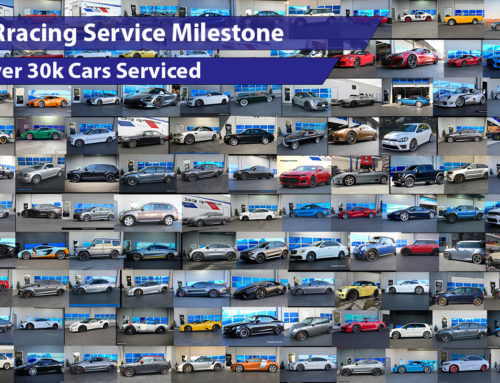Oil Changes – Does Frequency Make a Difference?
There seems to be a lot of contradictory information on oil changes.
(The picture above was from a BRracing customer who did not change his own regularly)
Most manufacturers are starting to promote longer oil change intervals. Why? Has some breakthrough been made that makes oil last longer, and the wear on the motor less? Or is this a game being played out in the market, to gain market share?
The answer is all the above. So, what should we know, or how should we manage the oil changes on our cars?
Market
In the ever competitive world of car sales, each manufacturer is trying to work all the little details to gain market share. Enter BMW in the early 2000’s, and their introduction of the “included maintenance” as part of the car purchase. Why did they do this? Research had shown that potential BMW customers were concerned that the ongoing maintenance costs of a BMW vs other cars was high. So, if they now included the maintenance, that removed the issue from the buyer. Now BMW was seen as less expensive to maintain than other cars. But, nothing changed on the car itself. BMW needed to keep the cost to themselves and the dealers down, so, they magically changed the service interval from every 7,500 miles to every 15,000 miles. As this market strategy has worked in BMWs favor, other car manufacturers are adopting some of the same elements. We see other manufacturers adopting the “included maintenance” solution, and at the same time, the service interval change (getting higher). Is this so bad?
Not for the car manufacturers. The downside to less frequent oil changes is wear on the motor and other lubricated parts. Who loses in this equation? The owner of the car once it reaches 100k miles, as the incremental additional wear on the motor will start to produce unwanted or unexpected results…..things will wear out sooner, or things will break sooner.
Evidence of this is now starting to become known. GM released a letter to owners of cars between the years of 2010 – 2012, to notify them that they may need to do oil changes more frequently than their computer or service display shows. Why? Because GM is starting to have to deal w more warranty claims on broken motors. They are offering to reprogram the software on the car to show the need for more frequent oil changes than before, to prevent these downside affects of extending the oil change interval.
BMW & MINI changed their direction in 2013. The cars (BMW & MINI) built from 2000 – 2015 have a computer based service reminder, and that reminder has an oil change interval of 15k miles. Due to issues seen, BMW & MINI changed this requirement back to once a year, or every 7,500 – 10k miles, but did NOT update the software in the car to reset this service reminder. They left the car owner to understand this change on their own. Starting in 2017, BMW & MINI cars computer service reminders for oil changes now state every 10k miles, OR, it can be changed by the dealer or independent service center (like BRracing) to the customers desire, as long as it is lower than 10k miles.
Now, we as independent shop service centers are seeing the evidence as well. We (BRR) are now dealing w replacement motors, highly worn parts on a weekly basis. The fundamental shift in oil change intervals has taken about 8 years to work its way into the market, but the results are clear. Cars and motors are not lasting as long, and not like before, where if you took good care of the motor, it could last well over 300k miles. Now motors and other parts are requiring replacement in the 120k – 200k range. Again, the car manufacturers don’t really care, as the owners of the cars at that age are not the next new car customer for the car manufacturer…so, they win on both sides. The longer oil change cycle introduces early product obsolescence, and they reduce their cost for included maintenance.
Product
Is this really so bad or has product improved (both the durability of the motor and parts as well as the lubrication protection of the new synthetic oils)? Yes to both. Car manufacturers have found multiple ways to improve the longevity of parts, even as they try to reduce the mass of the parts for weight and fuel economy gains. And, the new synthetic oils (and the next wave of new synthetic oils will come starting in 2018 +, more on that in another article) have improved their thin wall compressibility, and extended the periods of molecular breakdown. Both of these elements have helped, but not to the point where oil change intervals can grow from the old standard of 3,000 miles to 15,000 miles.
(The picture above is from a new customer who has a current, post 2000 BMW engine, where the owner did not follow the preferred oil change interval…and the results are clear).
NET
We see better product all the time, and continued evolution of all technology advances, but we have not seen the results for synthetic oils and engine design to the point of extending oil changes beyond every 7,500 – 10,000 miles. (Unless you now have an electric car, in which case you get to thing about coolant changes instead of oil changes).
As the old saying goes, you can pay a little now (for the proper protection), or pay a lot more in the future.







Leave A Comment
You must be logged in to post a comment.